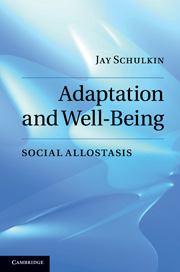Book contents
- Frontmatter
- Contents
- Preface
- Introduction
- 1 Evolutionary Perspectives and Hominoid Expression
- 2 Cognitive Competence and Cortical Evolution
- 3 A Window into the Brain
- 4 Chemical Messengers and the Physiology of Change and Adaptation
- 5 Social Neuroendocrinology
- 6 Cephalic Adaptation: Incentives and Devolution
- 7 Neocortex, Amygdala, Prosocial Behaviors
- Conclusion: Evolution, Social Allostasis and Well-Being
- References
- Index
3 - A Window into the Brain
Published online by Cambridge University Press: 18 April 2011
- Frontmatter
- Contents
- Preface
- Introduction
- 1 Evolutionary Perspectives and Hominoid Expression
- 2 Cognitive Competence and Cortical Evolution
- 3 A Window into the Brain
- 4 Chemical Messengers and the Physiology of Change and Adaptation
- 5 Social Neuroendocrinology
- 6 Cephalic Adaptation: Incentives and Devolution
- 7 Neocortex, Amygdala, Prosocial Behaviors
- Conclusion: Evolution, Social Allostasis and Well-Being
- References
- Index
Summary
INTRODUCTION
As Darwin (1859/1958) noted, social instincts are the prelude for much of what governs our social evolution; climatic variation and stability perhaps fostered group formation as an important evolutionary adaptation – linking up with others, helping them, being helped. Of course the debate over the extent to which our behavior is governed by instincts has had a long and torturous history (James, 1890/1952). The social instincts are used to get linked to others and are bound to the development of a variety of social cognitive skills used to deceive (Mithen, 1996), trust, and engage in both social contact and social withdrawal. However, these instincts lie mostly in the formation of important alliances that underlie our cognitive evolution, amidst language and a set of diverse cognitive adaptations that root us in the world, a world in which epistemological and practical action predominate.
Both cultural and physiological/ecological stability are important factors in our evolution as are the diverse forms of adaptations that underlie coping with periods of non-stability. The search for stability and coherence amidst social insecurity is a fundamental feature that underlies human motivation and social investigation. In this chapter, I begin with an orientation of neuronal structure and function; a changing sense of our understanding of the organization of action through envisioning both the motor regions and limbic regions (e.g. information molecules that changed our conception of the classical limbic system) is vital for the expanding cognitive adaptations that figure in our social attachments and the allocation of cognitive resources for sustaining viable responses to changing landscapes.
- Type
- Chapter
- Information
- Adaptation and Well-BeingSocial Allostasis, pp. 55 - 66Publisher: Cambridge University PressPrint publication year: 2011



